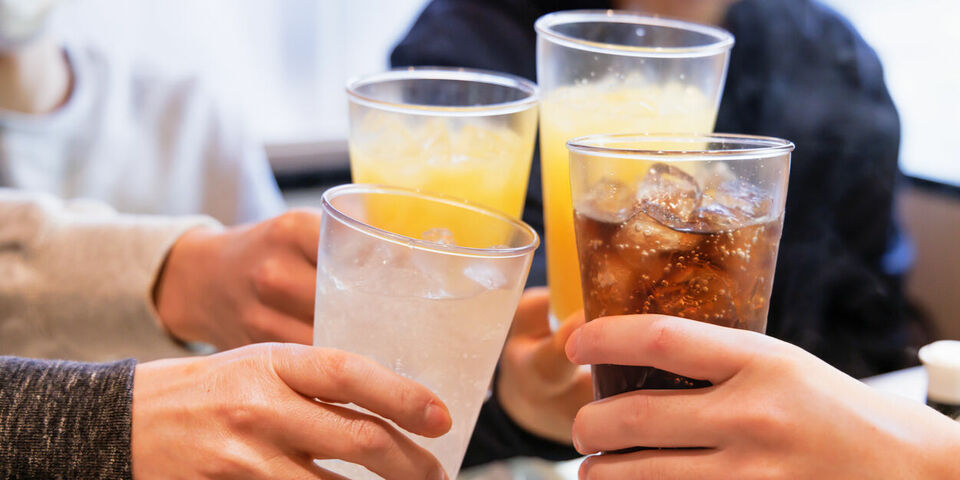The participating associations believe that it is important to collectively draw a line, particularly to prevent the negative consequences of alcohol consumption, in line with the National Prevention Agreement. The students are concerned not only with the contribution towards health and wellbeing but also with inclusiveness and social safety. The covenant states that students who do not drink should also feel welcome in the student community, as should international students who often come from a different drinking culture.
More specifically, the signatories agree, among other things, that they will not serve alcohol before 16:30 and that they will promote non-alcoholic beverages. In addition, the associations will raise awareness among their members about the risks of excessive drinking, training sessions will take place and an overarching core team will implement and monitor the covenant.
Cultural change
Students Silke Smit and Gabriël Nusselder, along with several other students, took the initiative in creating the covenant. “Our main concern is to counteract excessive alcohol consumption and all of the negative consequences associated with this,” says Smit. “We want to preserve what is going well but prevent excesses and encourage people to hold one another accountable. In addition, we want to normalize the choice not to drink. In the longer term, there has to be a cultural change regarding alcohol consumption.”
The covenant will be signed by a total of 21 associations that have their own bars, including sports associations, study associations and the general student associations. In addition, TU/e will be a signatory, through which the agreements made will also apply to the entire university, both students and employees. The door is open for other parties related to student life in Eindhoven to join the covenant.
“I’m proud that our students themselves are taking the initiative to ensure responsible alcohol consumption,” says TU/e President of the Executive Board Robert-Jan Smits, signing on behalf of the university. “It signals their responsibility, that they are going to hold each other accountable. It is an example to others and, as a university, we are happy to help with this.”
Many heavy drinkers among college students nationwide
The Student Mental Health and Substance Use Monitor published last week by the Trimbos Institute reveals that one in six students is a heavy drinker.
For the second time, thousands of students have been asked about their mental health and their use of alcohol and drugs. Once again, a significant portion indicated they have psychological complaints, and substance use hasn’t changed much either.
The first measurement took place in 2021, right in the middle of the lockdown motivated by the third COVID wave. The report by the National Institute for Public Health and the Environment (RIVM), the Trimbos Institute and the municipal health services made a huge impact. The results were very worrying, the then cabinet thought.
Alcohol consumption continues to be a problem amongst students. One in nine (11 percent) never drinks, but out of all the rest, 39 percent are ‘risky’ drinkers: they sometimes feel sorry afterwards, are sometimes advised to drink less or are unable to meet their obligations due to their alcohol consumption. Another 4 percent may have an addiction problem.
Response
In total, 32 thousand students at thirteen universities of applied sciences and eleven research universities answered questions, but that’s actually not a lot: about 500 thousand students were contacted, so the response rate is 6.5 percent. The researchers are aware this may mean the results aren’t entirely representative.



Discussion